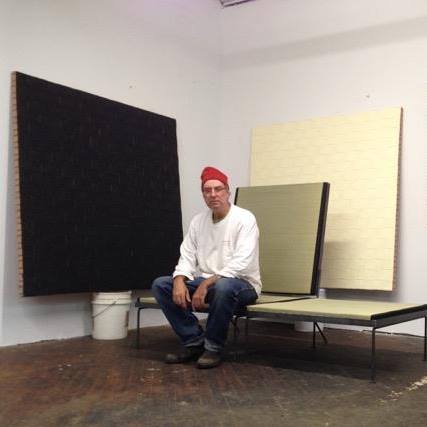Schwarz
View current page
...more recent posts

black betty table
leanon coat rack
brackets included steel shelf
cloud meeting room
slow cruise on the highline
The Lower Manhattan Development Corporation (LMDC) has announced that it will launch a series of public workshops to determine the programming for the future Memorial Museum. The museum, to be located at the World Trade Center site, will include fragments of materials from both the 1993 bombing and the 2001 attack. In collaboration with the Civic Alliance to Rebuild Downtown New York and New York New Visions, each workshop will feature a presentation of preliminary programming concepts, currently by developed by curatorial planners Howard+Revis Design Services, Inc., institutional planning consultant LORD Cultural Resources Planning and Management, Inc., and the LMDC. The workshops will offer the public the opportunity to discuss their expectations for the Memorial Museum and to comment on the preliminary concepts. The final recommendations of the Memorial Center Advisory Committee can found on the LMDC’s website: www.RenewNYC.com/memorial.
more afghan war rugs

mark rothko - homage to matisse (1953)
you think your dad was tough - mp3 of murray wilson and the boys from the help me ronda sessions - in parts or the full 40 min version
Only weeks after the world lost the great R.L. Burnside, another stellar light of both the Fat Possum label and music in general has passed away; Paul "Wine" Jones died of cancer in Jackson, Mississippi on Sunday. He was age 59. His two discs Mule (1995) and Pucker Up Buttercup (1999) were pretty much in the similar vein of so many of his labelmates also plucked from obscurity and saddled in Oxford, Mississippi studios by FP chief excavators Matthew Johnson and Bruce Watson: raw, blazing display of an ever-dimming continuum between the roots of Delta jukejoints, Fred McDowell-style ass-shaking repetition and today's primitive blues done with pure spirit. With Junior Kimbrough, Asie Payton, RL Burnside and now Jones gone, that thread gets sadly thinner. Wine's sound was all his own vocabulary, and in the end influenced really by no one but himself and his surroundings. Buttercup is a fractured and odd blues record which at times rips speakers to shreds; it's the sound of someone barely familiar with a studio telling his story (joined by a fellow named Pickle on drums) in distortion-flecked sketches right down to the finale, appropriately titled "I Guess I Fucked It All Up." We at WFMU had the distinct pleasure of witnessing the man in action as he joined Kenny Brown and T-Model Ford for a hard-to-believe-they-were-rocking-AND-drinking-at-9AM live performance on David Suisman's Inner Ear Detour show back in 2004. Listen to his 4-song set here! (Real Audio) And also check out Pucker Up Buttercup's "Goin' Back Home" from another Inner Ear Detour show here (Real Audio). And, if you get a chance, do check out the excellent DVD documentary You See Me Laughin', which traces the story and the intertwining lives of many of these, the very last of the Hill Country Blues men. A third Jones album was in the works according to the Fat Possum catalog page that was originally due in January.via brian turner on fmu blog
a revamped wfmu beware of the blog w/ more bells and whistles
Porch Posts, Balusters, Rails, Etc.
The pumps at Station No. 1 are arranged in a neat row, their suction pipes reaching down under the building to connect to the city's vast network of drainage canals. The 12-foot 1913 pumps, designed by the engineer Albert Baldwin Wood, are still here, as are four more he designed in 1928. The last two, the biggest and most powerful, were built in the mid-90's.
The night of the storm, Mr. Martin said, "the two new pumps went out right away. They're the most powerful. They sound like freight trains. Four of the old ones kept going all night. The original two pumps, those are the most reliable. I'd use those two before I'd use any of the others."
He walked to the back of the shed, where two towering wood doors are held in place by heavy braces. As the storm picked up speed that night, 100-mile-per-hour winds pounded the doors, threatening to tear them from their frames. If the storm waters flowed past them, he knew, the station would stop functioning. So he threw himself against the doors, struggling to hold them back while screaming for help over the roar of the machines. The other men came running to help, jamming the wood braces between the doors and the machines. That night, the pump stations kept the city from flooding.
I also knew, or thought I knew, that right up to Thursday night, there had been just two houses in Uptown New Orleans with people inside them. In one, a couple of old coots had barricaded themselves behind plywood signs that said things like "Looters Will Be Shot" and "Enter and Die." The other, a fortlike house equipped with a massive power generator, was owned by Jim Huger - who happened to grow up in the house next door to my parents. (When I heard that he had the only air-conditioning in town and I called to ask if I could borrow a bed, he said, "I'm that little kid you used to beat on with a Wiffle Ball bat, and I gotta save your ass now?") In Jim Huger's house, until the night before, several other young men had holed up, collecting weapons and stories. Most of these stories entered the house by way of a reserve officer in the New Orleans Police Department, a friend of Jim's, who had gone out in full uniform each day and come back with news directly from other cops. From Tuesday until Thursday, the stories had grown increasingly terrifying. On Thursday, a police sergeant told him: "If I were you, I'd get the hell out of here. Tonight they gonna waste white guys, and they don't care which ones." This reserve cop had looked around and seen an amazing sight, full-time New Orleans police officers, en masse, fleeing New Orleans. "All these cops were going to Baton Rouge to sleep because they thought it wasn't safe to sleep in New Orleans," he told me. He had heard that by the time it was dark "there wouldn't be a single cop in the city."
